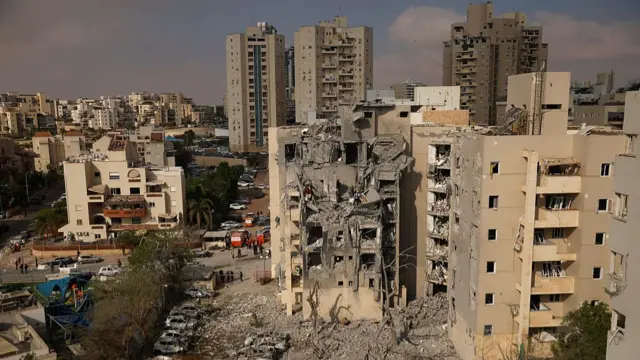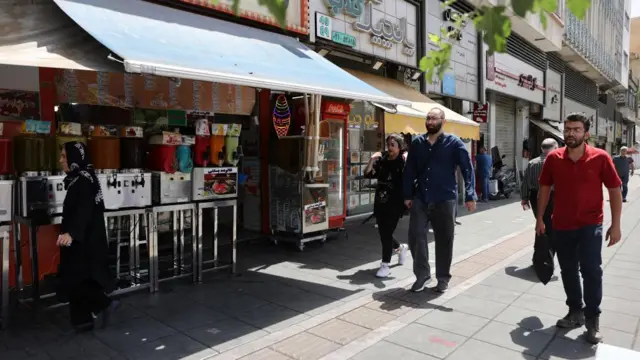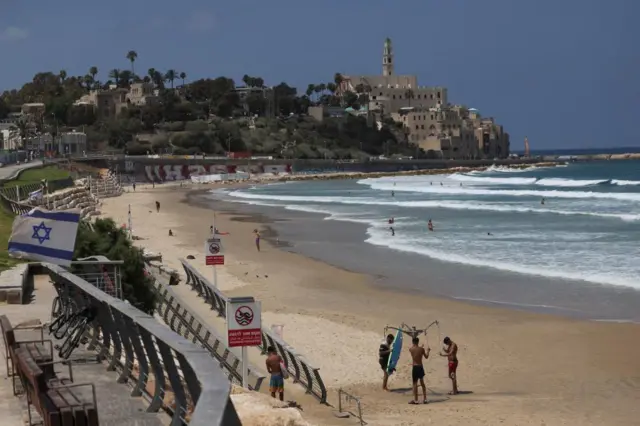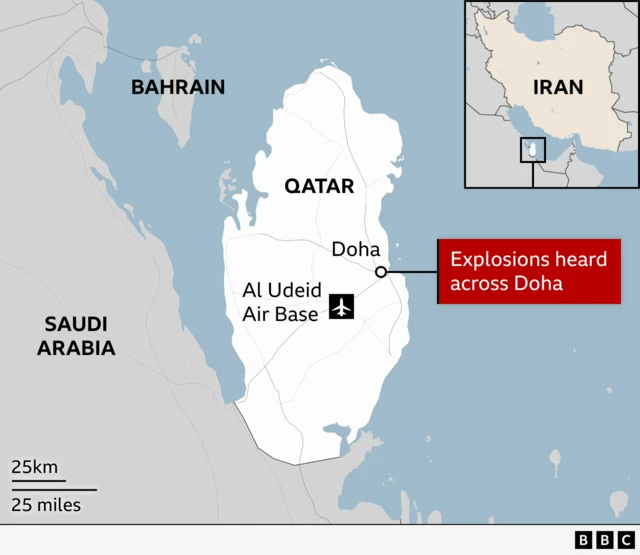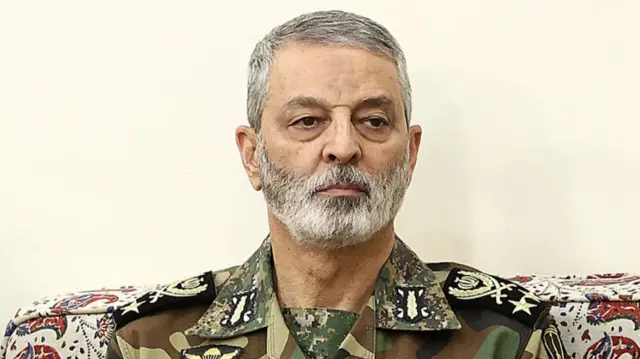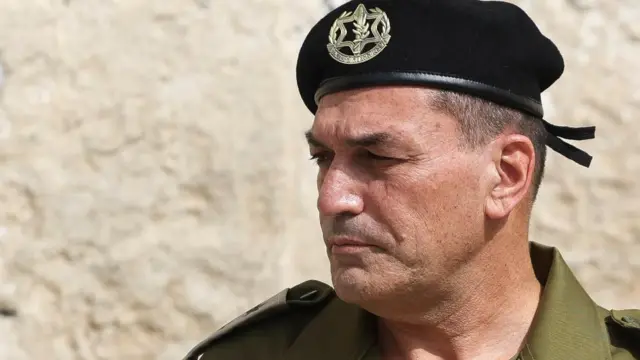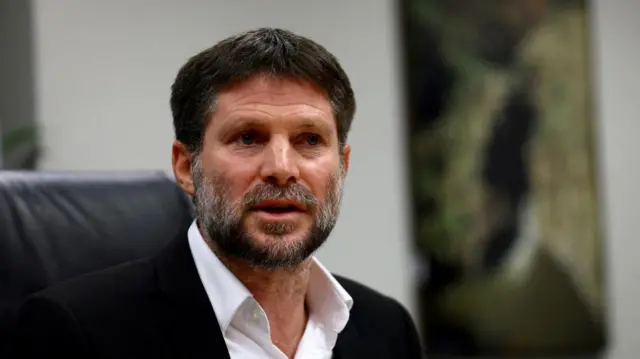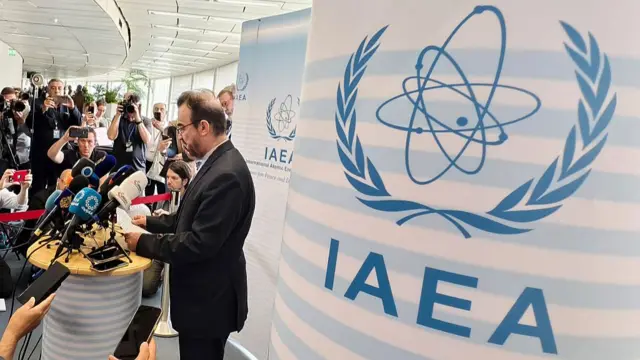At least one dead in attack on Tehran's Evin prison, official sayspublished at 11:42 BST 24 June
On Monday, Israel struck Evin prison in Tehran, damaging parts of the facility.
We’re now getting an update on casualties.
At least one person has died following the attack, according to Iran’s judiciary spokesperson Asghar Jahangir, quoted by state TV.
"Part of the Evin administrative building was destroyed," he said.
Iranian state TV also reports that prisoners have been moved to other prisons in Tehran province, citing a statement from the country’s prisons authority.
Evin prison holds thousands of people, including political dissidents, human rights defenders, and journalists.
Israel’s defence minister said yesterday that Israel had targeted Evin prison, describing it as holding political prisoners and “enemies of the regime”.
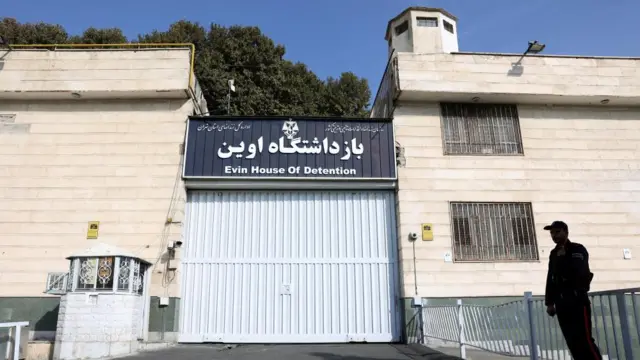 Image source, Reuters
Image source, ReutersEvin Prison in Iran, where political prisoners are held, pictured on 23 June

